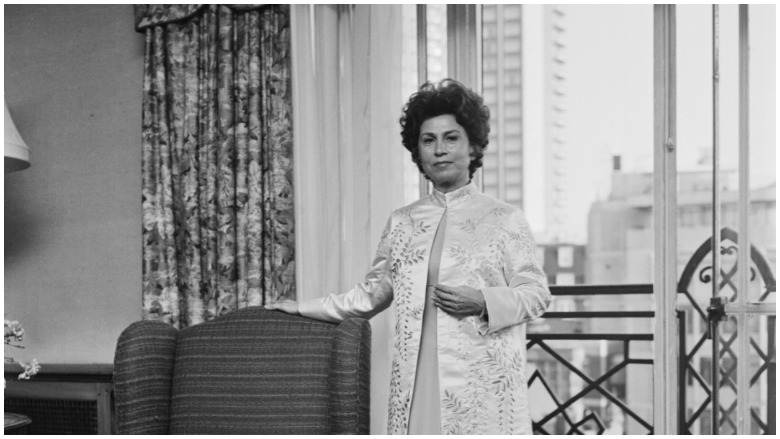Dreyfus Affair: 130 Years Later, A Call For Posthumous Promotion

Table of Contents
The Injustice of the Dreyfus Affair: A Detailed Account
The Dreyfus Affair, a scandal that rocked France from 1894 to 1906, centered on the false accusation of treason against Captain Alfred Dreyfus, a Jewish officer in the French Army. The accusations, based on flimsy and ultimately fabricated evidence, were fueled by rampant antisemitism within the French military establishment.
False Accusation and Anti-Semitic Bias
The evidence against Dreyfus was shockingly weak. A bordereau (memorandum) supposedly containing French military secrets was presented as proof of his guilt. However, handwriting experts later showed the document wasn't written by Dreyfus. The anti-Semitic bias of the military officers involved played a crucial role in their willingness to overlook the lack of credible evidence.
- Fabricated evidence: The bordereau itself was questionable, with handwriting analysis eventually proving its authorship was not Dreyfus’s.
- Prejudicial atmosphere: The pervasive antisemitism within the French military created an environment where a Jewish officer was automatically viewed as a suspect.
- Military conspiracy: A concerted effort to protect the real culprit, Major Ferdinand Walsin Esterhazy, involved a deliberate cover-up and suppression of evidence.
- Wrongful conviction: Driven by antisemitism and a desire to maintain the reputation of the army, Dreyfus was convicted based on prejudiced assumptions rather than factual evidence.
The Role of Public Opinion and the Press
The Dreyfus Affair quickly became a highly publicized battleground. The press played a significant role, with some newspapers fueling anti-Semitic sentiment and others bravely defending Dreyfus. This division created a polarized public opinion.
- Émile Zola and "J'accuse": Novelist Émile Zola's powerful open letter, "J'accuse…!", published in L'Aurore, became a rallying cry for Dreyfusards (those who supported Dreyfus).
- Public opinion: The nation divided sharply along lines of anti-Dreyfusards and Dreyfusards, reflecting deep-seated societal divisions and prejudices.
- Media influence: The newspapers' reporting, whether biased or objective, profoundly impacted public perception of the case.
- Dreyfusards: This group comprised intellectuals, journalists, and politicians who fought for justice and against antisemitism.
The Legal Battles and Reversal of the Verdict
Dreyfus's initial trial was a travesty of justice. However, persistent efforts by his supporters led to a retrial and eventual exoneration.
- Initial trial: Marked by irregularities and biased proceedings, it resulted in an unjust conviction.
- Retrial: Driven by new evidence, this trial exposed the conspiracy and ultimately vindicated Dreyfus.
- Exoneration: Dreyfus's eventual exoneration, though coming after years of suffering, represented a victory for justice and a condemnation of the anti-Semitic persecution.
- French justice: The affair highlighted significant flaws within the French judicial system and prompted calls for reform.
The Enduring Legacy of the Dreyfus Affair: A Symbol of Injustice
The Dreyfus Affair's impact extends far beyond its immediate aftermath. It left a lasting mark on French society, politics, and its understanding of justice.
Impact on French Society and Politics
The affair exposed the deep-rooted antisemitism within French society and spurred significant changes.
- Rise of Zionism: The affair contributed to the growth of the Zionist movement, as many Jewish people felt increasingly unsafe in Europe.
- French politics: The scandal profoundly impacted the political landscape, leading to significant reforms and a renewed focus on civil liberties.
- Social impact: It forced a nationwide reckoning with the issue of antisemitism and led to increased awareness of social injustice.
- Military reform: The affair led to reforms within the French military to address its flawed structures and practices.
The Affair's Relevance in Modern Times
The Dreyfus Affair remains strikingly relevant today. Its lessons about antisemitism, prejudice, and the importance of fair judicial processes are as timely as ever.
- Modern injustice: Cases of wrongful convictions and prejudiced judicial proceedings continue to occur worldwide.
- Antisemitism today: The resurgence of antisemitism in many parts of the world underscores the enduring need to combat hate and prejudice.
- Contemporary relevance: The affair serves as a cautionary tale against the dangers of unchecked power and the importance of upholding justice.
- Fair trial: The affair emphasizes the critical need for transparent and unbiased judicial processes.
The Case for Posthumous Promotion: Honoring Alfred Dreyfus
The profound injustice suffered by Alfred Dreyfus warrants a posthumous promotion. This symbolic gesture would represent a significant step towards rectifying a historical wrong.
Arguments in Favor of a Posthumous Promotion
A posthumous promotion would be a powerful act of historical justice.
- Symbolic gesture: It would acknowledge the grave injustice suffered by Dreyfus and reaffirm the commitment to justice.
- Historical justice: It would serve as a formal recognition of Dreyfus's innocence and the suffering he endured.
- Dreyfus rehabilitation: It would complete the process of rehabilitating his reputation and legacy.
- Moral imperative: It would be a powerful statement about the importance of confronting historical injustices.
Counterarguments and Their Rebuttals
Some may argue against a posthumous promotion, citing concerns about precedent or the complexities of historical judgments. However, these concerns are outweighed by the imperative to address the gross injustice.
- Counterarguments: Some might argue that setting a precedent for posthumous promotions could have unforeseen consequences. Others might claim that focusing on the past detracts from current issues.
- Rebuttals: The unique circumstances of the Dreyfus Affair, the magnitude of the injustice, and the ongoing fight against antisemitism make it a compelling case for a unique solution. Acknowledging past wrongs does not diminish the need to address present ones; rather, it strengthens the resolve to prevent future injustices.
Conclusion: The Dreyfus Affair: A Continued Call for Justice
The Dreyfus Affair remains a potent symbol of injustice, highlighting the devastating consequences of antisemitism and the crucial importance of due process. The case for a posthumous promotion for Alfred Dreyfus is clear: it would be a powerful symbolic act that acknowledges a profound historical wrong and reinforces the commitment to fighting for justice and equality. We urge you to join the call for a posthumous promotion for Alfred Dreyfus, ensuring that the lessons of the Dreyfus Affair continue to resonate and inspire us to fight against injustice wherever it arises. The fight for justice, inspired by the enduring legacy of the Dreyfus Affair and Alfred Dreyfus himself, must continue.

Featured Posts
-
 Beurzen Herstellen Na Trump Uitstel Aex Stijgt
May 24, 2025
Beurzen Herstellen Na Trump Uitstel Aex Stijgt
May 24, 2025 -
 Amundi Msci World Ii Ucits Etf Usd Hedged Dist Net Asset Value Nav Explained
May 24, 2025
Amundi Msci World Ii Ucits Etf Usd Hedged Dist Net Asset Value Nav Explained
May 24, 2025 -
 Bangladesh And Europe A Collaborative Approach To Economic Development
May 24, 2025
Bangladesh And Europe A Collaborative Approach To Economic Development
May 24, 2025 -
 Flying Around Memorial Day 2025 When To Book For Best Prices And Availability
May 24, 2025
Flying Around Memorial Day 2025 When To Book For Best Prices And Availability
May 24, 2025 -
 Fedor Lavrov Lyudi Lyubyat Schekotat Nervy Razmyshleniya O Pavle I I Trillerakh
May 24, 2025
Fedor Lavrov Lyudi Lyubyat Schekotat Nervy Razmyshleniya O Pavle I I Trillerakh
May 24, 2025
Latest Posts
-
 Mia Farrow Calls For Trumps Arrest Over Venezuelan Deportations
May 24, 2025
Mia Farrow Calls For Trumps Arrest Over Venezuelan Deportations
May 24, 2025 -
 Understanding Frank Sinatras Four Marriages Wives Love And Legacy
May 24, 2025
Understanding Frank Sinatras Four Marriages Wives Love And Legacy
May 24, 2025 -
 The Four Women Who Married Frank Sinatra Their Stories And Impact
May 24, 2025
The Four Women Who Married Frank Sinatra Their Stories And Impact
May 24, 2025 -
 Mia Farrow On Trump Deportations Of Venezuelan Gang Members Warrant Arrest
May 24, 2025
Mia Farrow On Trump Deportations Of Venezuelan Gang Members Warrant Arrest
May 24, 2025 -
 Frank Sinatra And His Four Wives A Retrospective On His Marriages
May 24, 2025
Frank Sinatra And His Four Wives A Retrospective On His Marriages
May 24, 2025
